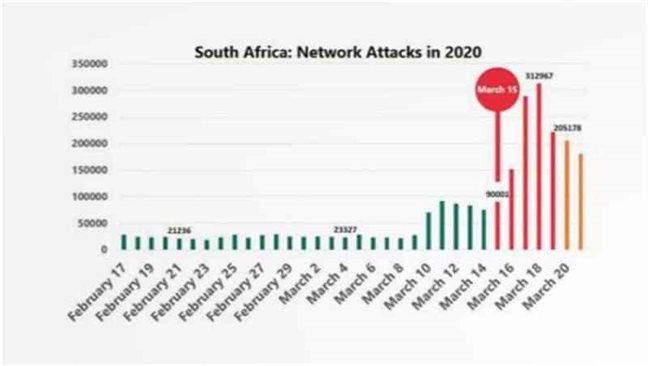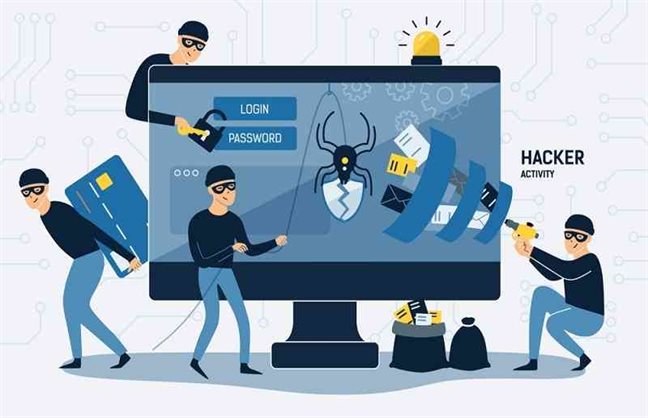Hackers Attack Around 300,000 Devices in South Africa Amid COVID-19 Crisis
Source: CISOMAG
04 April 2020 Kathmandu
Remote work has increased the risk rate of cyberattacks amid the COVID-19 pandemic. With everyone working at home, it can cause leaking of the organization’s private data – especially the ones in health care, finance, federal, and state agencies. These industries will have more impact due to remote working conditions.
With a surge in device usage and internet traffic, hackers have found a goldmine of opportunities to release cyberthreats.
Kaspersky’s research suggests that South Africa suffered several network attacks between March 15 to March 21, 2020. Also, it has revealed that the cybercriminals attacked up to 310,000 devices in a span of a week.

Image source: MyBroadband
A report from MyBroadband suggests that hackers have targeted IT networks. It is due to the fact that the country is accessing corporate networks remotely.
Hacking Attempt in South Africa
Most of the hacking attempts in South Africa involved brute force attacks. Clearly, hackers intended to steal sensitive data and credentials. The hackers targeted corporate network systems to gain control over the organization’s sensitive information.
Maher Yamout, Senior Security Researcher for the Global Research and Analysis Team at Kaspersky commented on the scenario – “The region is seeing an increase in attempts to break into the organizations’ systems to establish control over them, sabotage their work, or access sensitive information.”
“Remote working provides cybercriminals with a prime opportunity to target devices, especially those that don’t necessarily have adequate IT security measures in place,” Yamout added on the risk of remote working. “Such a spike recorded, although temporary, leads us to believe that cybercriminals have keenly been focused on the region given the current circumstances.”
Pro Tips from Kaspersky
While cybercrimes keep on rising at an alarming rate during the COVID-19 crisis, Kaspersky recommended a few tips to remote workers. These include:
- Make use of a VPN to connect securely to the corporate network
- Use multi-factor authentication wherever possible
- Ensure all corporate devices – including mobiles, laptops, and tablets are protected with adequate security software
- Segregate your personal devices/life from corporate computers
- Ensure the latest available updates are installed regularly
- Only use corporate-approved teleconferencing software
- Practice basic cybersecurity rules
Incidents like these make remote workers and normal users wonder if their device security systems can protect them. But then, you can never know for sure.
Remote workers need to make sure they update their device operating system and software. Following the guidelines is our best chance to prevent falling victim to cyberattacks.







